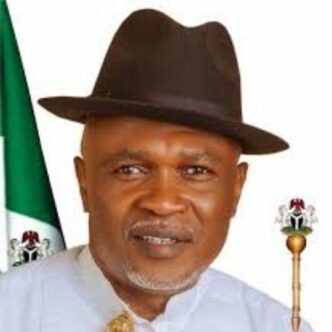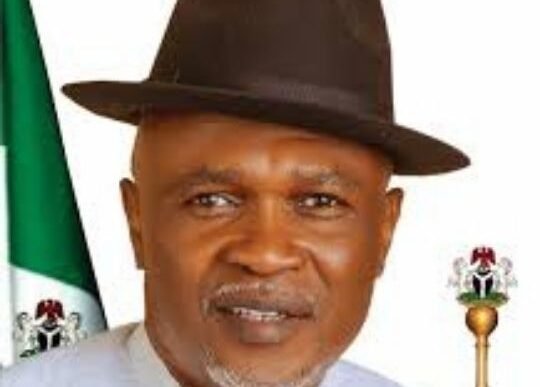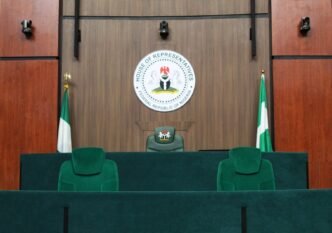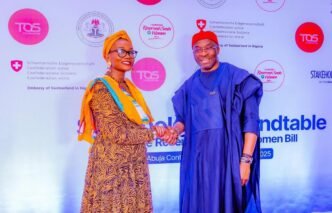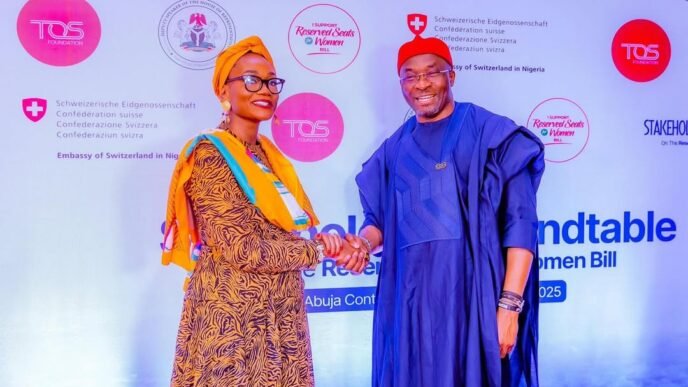HB: 1498 A BILL FOR AN ACT TO ALTER THE CONSTITUTION OF THE FEDERAL REPUBLIC OF NIGERIA, 1999 (AS AMENDED), TO ACCOMMODATE THE THIRTY-SEVEN (37) DEVELOPMENT AREA COUNCILS OF LAGOS STATE AS FULLFLEDGED LOCAL GOVERNMENT AREAS, INCREASING THE TOTAL NUMBER OF LOCAL GOVERNMENT AREAS IN LAGOS STATE TO FIFTYSEVEN (57) AND THE TOTAL NUMBER OF LOCAL GOVERNMENT AREAS IN THE FEDERATION TO EIGHT HUNDRED AND ELEVEN (811), AND FOR RELATED MATTERS Bill Sponsor: Hon. John Dyegh Bill Progress: Committee Stage
This Bill seeks to alter part 1 of the 1st Schedule the Constitution of the Federal Republic of Nigeria, 1999, to provide for the recognition and operationalization of the thirty seven (37) Development Area Councils in Lagos State as full-fledged Local Government Areas (LGAs). This alteration is aimed at increasing the number of Local Government Areas in Lagos State to fifty-seven (57).
A recent examination of the Nigerian House of Representatives’ Order Paper has brought to light the details of bill HB 1498, which proposes significant amendments to the 1999 Constitution of the Federal Republic of Nigeria. This bill aims to incorporate the National Human Rights Commission (NHRC) as one of the federal executive bodies, highlighting a crucial step toward enhancing human rights governance within the country.
The intention behind bill HB 1498 underscores the importance of institutionalizing human rights protections in Nigeria’s legal framework. By officially designating the NHRC within the Constitution, the bill seeks to elevate the commission’s status and empower it to operate more effectively in promoting and protecting human rights for all citizens.
However, there appears to be a notable discrepancy regarding the subject matter associated with the bill number HB 1498. Initial inquiries suggested that this bill might be linked to matters concerning local governments in Lagos State. Yet, the information obtained confirms that HB 1498 specifically pertains to the National Human Rights Commission. This inconsistency raises questions about potential renumbering of bills or the possibility that initial references to the bill might have misrepresented its focus.
The incorporation of the NHRC into the Constitution presents an opportunity for broader advocacy and oversight regarding human rights issues in Nigeria. Advocates argue that a constitutional mandate would strengthen the commission’s authority, enabling it to better address complaints and promote awareness of human rights within the population. Incorporating the NHRC could also facilitate greater accountability within government institutions, ensuring that human rights are upheld across various sectors.
As this bill progresses through the legislative process, it will require significant support from both the Senate and the House of Representatives. The path toward constitutional amendment is multifaceted, necessitating a two-thirds majority vote in both chambers as well as the backing from a majority of state Houses of Assembly.
The implications of HB 1498 extend beyond legislative approval; it reflects a growing recognition within Nigeria of the need for robust mechanisms to protect human rights. As public discourse on human rights continues to evolve, this bill could set a precedent for future legislation aimed at safeguarding citizens’ rights and promoting justice in the nation.
In summary, HB 1498 represents a pivotal moment in Nigeria’s legislative landscape, as it aims to solidify the role of the National Human Rights Commission. As developments unfold, the conversations surrounding this bill will likely contribute to a broader understanding of human rights and governance in the country. The ongoing discussions and legislative maneuvers will be critical in shaping the future of human rights protection in Nigeria.



